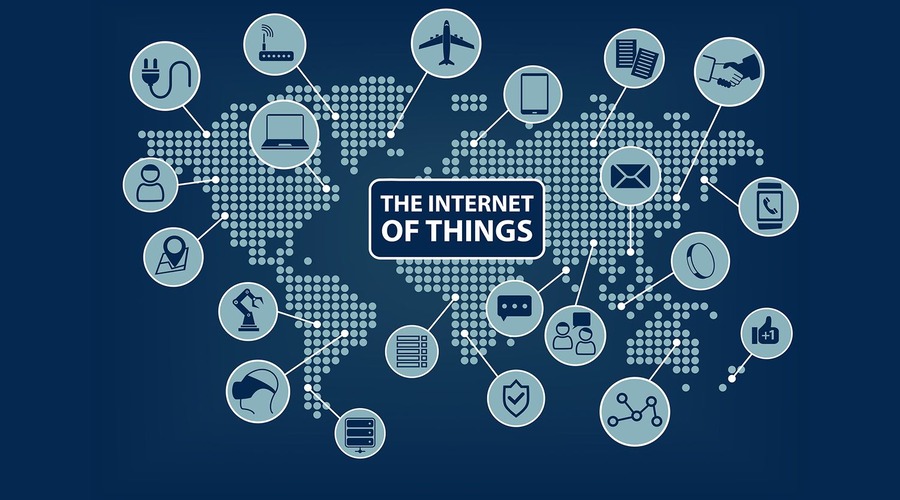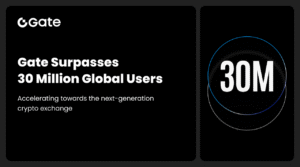In today’s technologically advanced world, the integration of smart contracts and the Internet of Things (IoT) has opened up new possibilities for automation, efficiency, and secure transactions. This article will delve into the concept of smart contracts, explore the world of IoT, and examine how the integration of these two technologies can revolutionize various industries.
Introduction to Smart Contracts and IoT
The rapid advancement of technology has led to the emergence of innovative solutions that streamline processes and enhance connectivity. Smart contract, a key component of blockchain technology, are self-executing agreements with predefined rules and conditions. On the other hand, IoT refers to a network of interconnected devices that can collect and exchange data seamlessly. The convergence of these two technologies offers tremendous potential for businesses and individuals alike.
Understanding Smart Contracts
Definition and Functionality of Smart Contracts
Smart contracts are digital contracts that automatically execute predefined actions once certain conditions are met. These contracts eliminate the need for intermediaries, reducing costs and increasing efficiency. They are powered by blockchain technology, which ensures transparency, immutability, and security.
Benefits of Smart Contracts
The benefits of smart contracts are numerous. Firstly, they eliminate the need for trust between parties, as the terms and conditions are encoded into the contract itself. This reduces the likelihood of fraud or manipulation. Additionally, smart contract reduce the time and costs associated with traditional contract management processes, such as manual verification and enforcement. They also provide a reliable audit trail, ensuring transparency and accountability.
Introduction to IoT (Internet of Things)

What is IoT?
The Internet of Things refers to the network of physical devices, vehicles, appliances, and other objects embedded with sensors, software, and connectivity, enabling them to collect and exchange data. These devices can communicate and interact with each other, making autonomous decisions and improving efficiency in various domains.
Importance of IoT
The proliferation of IoT devices has transformed industries such as healthcare, manufacturing, transportation, and agriculture. IoT enables real-time monitoring, predictive maintenance, and data-driven decision-making. It has the potential to revolutionize processes, optimize resource utilization, and enhance overall productivity and convenience.
Smart Contracts and IoT Integration
Overview of Smart Contracts and IoT Integration
The integration of smart contract and IoT creates a powerful synergy that amplifies the benefits of both technologies. Smart contract can leverage the data collected by IoT devices to automate and execute actions based on predefined conditions. This integration enables secure and autonomous transactions, eliminating the need for manual intervention.
Advantages of Integrating Smart Contracts and IoT
The integration of smart contracts and IoT offers several advantages.
- Enhanced transparency and trust: The combination of blockchain technology and accurate data from IoT devices ensures that transactions are transparent and can be verified by all parties involved, promoting trust and reducing disputes.
- Reduced human errors and manual interventions: By automating processes through smart contract and IoT integration, organizations can minimize human errors and eliminate the need for manual interventions, leading to more efficient and error-free transactions.
- Faster and more accurate transactions: With the removal of intermediaries and the automation of processes, transactions can be executed faster and with greater accuracy, saving time and increasing operational efficiency.
- Real-time monitoring and data-driven decision-making: IoT devices collect real-time data on various parameters, enabling smart contract to make data-driven decisions and take immediate actions based on predefined conditions. This enables proactive monitoring and timely interventions.
- Streamlined supply chain management: Integrating smart contract and IoT in supply chain management allows for real-time tracking of goods, automated inventory updates, and instant payments, optimizing the supply chain process, reducing delays, and improving overall efficiency.
- Improved security and fraud prevention: The immutability of blockchain technology and the secure communication between IoT devices enhance security and help prevent fraud in transactions, as the predefined conditions and actions are executed autonomously.
- Cost savings: By reducing the need for intermediaries, minimizing errors, and streamlining processes, integrating smart contract and IoT can lead to cost savings for businesses.
Use Cases of Smart Contracts and IoT Integration
- Supply Chain Management: One of the prominent use cases for smart contract and IoT integration is in supply chain management. By utilizing IoT devices such as RFID tags or sensors, the movement and condition of goods can be accurately tracked in real time. Smart contract can automatically update inventory, verify delivery conditions, and initiate payments based on predefined rules. This streamlines the supply chain process, reduces delays, and enhances transparency between stakeholders.
- Energy Grid Management: In the energy sector, integrating smart contract and IoT devices can optimize energy grid management. IoT devices like smart meters or sensors can collect real-time energy consumption, production, and distribution data. Smart contract can automatically adjust energy supply, manage billing and payments, and facilitate peer-to-peer energy trading. This integration enables more efficient utilization of resources, promotes renewable energy adoption, and improves grid stability.
- Healthcare Systems: Smart contract and IoT integration have the potential to revolutionize healthcare systems. IoT devices, such as wearable sensors or remote monitoring systems, can collect patient data, monitor vital signs, and transmit information to healthcare providers. Smart contract can automate processes such as appointment scheduling, insurance claims, and medical record management. This integration improves patient care, reduces administrative burdens, and enhances overall healthcare efficiency.
- Insurance and Claims: The insurance industry can also benefit from the integration of smart contract and IoT. IoT devices, such as telematics devices in vehicles or sensors in homes, can collect data on driving behavior or property conditions. Smart contract can automatically assess risks, calculate premiums, and process claims based on predefined conditions. This streamlines insurance processes, reduces fraudulent claims, and provides a more accurate assessment of risks.
Challenges and Limitations
- Security Concerns: Integrating smart contract and IoT brings security challenges. IoT devices can be vulnerable to hacking or unauthorized access if not properly secured. This can potentially compromise the integrity of data and the execution of smart contract actions. Implementing robust security measures, such as encryption, authentication protocols, and regular updates, is crucial to mitigate these risks.
- Scalability: Another challenge is scalability. As the number of IoT devices and smart contract increases, the blockchain network may face scalability issues. The high volume of data generated and the computational demands of executing smart contract actions can strain the network’s capacity. It is essential to explore solutions that can enhance the scalability of blockchain platforms to support the integration of IoT devices and the widespread adoption of smart contracts.
- Interoperability: Interoperability is another limitation when it comes to integrating smart contracts and IoT. Various IoT devices and platforms may use different protocols and standards, making ensuring seamless communication and data exchange challenging. Standardization efforts and the development of interoperability frameworks are necessary to overcome this limitation and facilitate the integration of diverse IoT devices with smart contract.
Future Possibilities
The integration of smart contracts and IoT is still in its early stages, and there are exciting possibilities for the future. As technology continues to advance, we can expect more sophisticated IoT devices and improved blockchain platforms that can handle the increased volume of data and transactions.
Moreover, advancements in machine learning and artificial intelligence can enhance the capabilities of smart contract and IoT integration. Predictive analytics can enable proactive decision-making based on real-time data collected by IoT devices, while AI algorithms can autonomously execute smart contract actions.
Furthermore, the integration of other emerging technologies, such as edge computing and 5G networks, can further optimize the performance and efficiency of smart contracts and IoT integration. Edge computing can reduce latency and process data closer to the source, while 5G networks can provide faster and more reliable connectivity for IoT devices.
Conclusion
The integration of smart contracts and IoT presents immense potential for various industries. From supply chain management to healthcare systems, the combination of these technologies offers transparency, efficiency, and automation. However, challenges such as security, scalability, and interoperability must be addressed to realize the benefits of this integration fully. As technology continues to evolve, the future holds even more possibilities for the seamless integration of smart contract and IoT.
FAQs
How does smart contract integration benefit supply chain management?
Integrating smart contracts into supply chain management streamlines processes, enhances transparency, and reduces delays. Smart contract automate tasks such as inventory management, verification of delivery conditions, and payment initiation. This ensures efficient collaboration between stakeholders and minimizes errors and disputes.
Can smart contracts and IoT improve healthcare systems?
Yes, the integration of smart contract and IoT can greatly improve healthcare systems. IoT devices can collect patient data, monitor vital signs, and transmit information to healthcare providers in real time. Smart contracts can automate processes like appointment scheduling, insurance claims, and medical record management, enhancing patient care, reducing administrative burdens, and increasing overall healthcare efficiency.
What are the security challenges in integrating smart contracts and IoT?
Security challenges in integrating smart contract and IoT arise from the vulnerability of IoT devices to hacking and unauthorized access. Breaches in IoT device security can compromise the integrity of data and the execution of smart contract actions. Robust security measures, including encryption, authentication protocols, and regular updates, are essential to mitigate these risks.
Are there any real-world examples of smart contract and IoT integration?
Yes, there are several real-world examples of smart contract and IoT integration. For instance, in the supply chain industry, companies like Walmart have implemented blockchain-powered smart contracts to track and authenticate the movement of products. In the energy sector, projects like Power Ledger utilize smart contract and IoT devices for peer-to-peer energy trading.
What does the future hold for smart contracts and IoT integration?
The future of smart contracts and IoT integration is promising. As technology advances, we can expect more sophisticated IoT devices, improved blockchain platforms, and enhanced scalability. Additionally, advancements in machine learning, AI, edge computing, and 5G networks will further optimize the performance and capabilities of smart contract and IoT integration.






